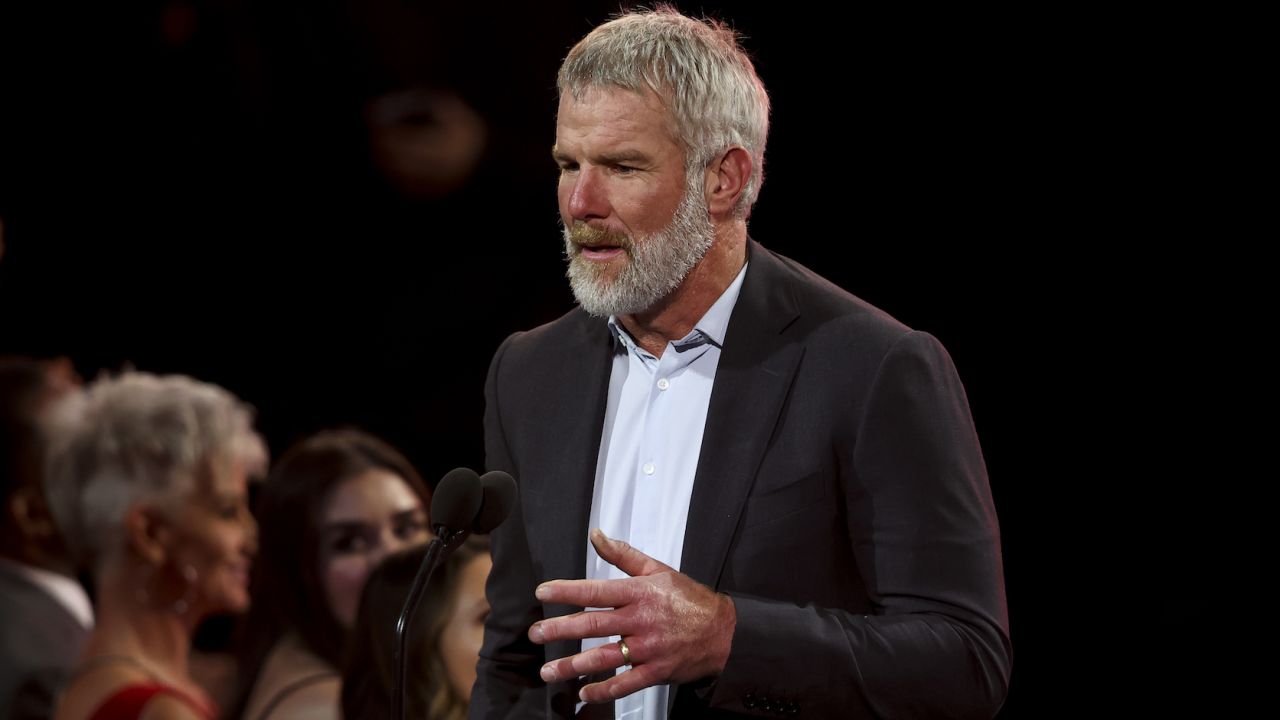
(CNN) — A version of this story appeared in CNN’s Race Deconstructed newsletter. To get it in your inbox every week, sign up for free here.
The welfare funds scandal involving Brett Favre has left people reeling.
A string of texts appears to show the Pro Football Hall of Famer pressuring former Mississippi Gov. Phil Bryant, a Republican, about funding the construction of a volleyball facility at the University of Southern Mississippi — Favre’s alma mater and where his daughter played the sport at the time — though Favre had been told that misusing state funds was potentially illegal, per new court filings. The funding of the project was part of an investigation into millions of dollars of misspent public welfare funds within the Mississippi Department of Human Services.
It’s unclear how the matter might unfold. But, already, it’s revived discussion about an age-old pattern: In the wake of scandal, White athletes seem to be treated differently from their Black peers.
“People believe there’s just more vitriol directed at Black athletes when they commit wrongdoings or give the appearance of messing up — and I think that’s more than fair. While no one is standing up for Favre, there isn’t this loud cry that he should lose everything,” the journalist Jemele Hill pointed out on Twitter.
“People almost always want a pound of flesh when it comes to Black athletes, and it’s often unrelenting. So sometimes it’s not about coverage, but tone,” she added.
To further explore the issue, I spoke with Harry Edwards, a professor emeritus at UC Berkeley whose research interests include race relations and the sociology of sport. He’s also the author of the 1969 book “The Revolt of the Black Athlete,” about activism among Black athletes.
Our conversation has been lightly edited for length and clarity.
What were your thoughts when you first heard about the scandal involving Brett Favre?
Well, on the one hand, I was familiar with Favre’s history, even while he was playing in the league, so on that level, I didn’t think that something like this was outside the bounds of his capabilities, let’s say.
On the other hand, there’s an awful lot of publicity around this case. He hasn’t been charged with anything at this point, much less convicted of anything. But he’s become the face of this tragic situation.
The people who also should be the face of this situation are the former governor, the people who administer funds and so forth. But, instead, because of his fame, Favre has become the poster boy for ripping off poor people in the poorest state in the country.
Jemele Hill recently noted that Black athletes often face more vitriol following an allegation of wrongdoing. Would you agree that this is a theme?
Absolutely. We can look at this situation as part of the fabric of White privilege in US society. When a White athlete behaves in a detestable way, the incident tends to be sportswashed, which is typical when you’re dealing with athletic celebrity. But it’s also whitewashed. That’s the White privilege element of it.
For example, people talked for decades about Jack Johnson — the first Black American world heavyweight boxing champion — and his philandering and casual relationships with women. (He had several interracial relationships throughout the early 20th century.)
If you compare Johnson with Babe Ruth (the legendary baseball player, who was White and also involved in various affairs), you couldn’t get a credit card between them. But Ruth wasn’t just sportswashed; he was whitewashed. It became a situation of masculinity, prowess, virility. But it became an issue of degeneracy with Johnson. So, this goes back for decades. There’s whitewashing that goes on in combination with sportswashing.
Sportswashing: That’s a term I’m not familiar with. Could you say more about what it means?
Athletic celebrity involves such an investment by masses of people. I mean, what kind of allegiance does it take to walk around in a jersey with someone else’s name on it? That kind of allegiance is very hard to reverse, unless it involves something perceived to be of greater sentiment or political, religious, personal or racial value.
For example, you had people who had worn Colin Kaepernick’s jersey start to burn it when he took a knee in protest of police violence against Black people. Something involving ripping off poor people, especially poor Black people? I don’t think that people are going to burn Favre’s jersey over that.
To me, this appears to be one of those situations where sport prevails over common decency, especially because the athlete was a winner. That’s what people buy into.
What will you be keeping an eye on in the weeks ahead?
It’ll be interesting to see how everything evolves and how long the issue remains a focus of conversation, especially since a lesser-valued group is being victimized and the scandal involves one of the greatest quarterbacks in NFL history. At the end of the day, that’s what I’m looking for. It’ll also be interesting to see how the NFL responds.
The-CNN-Wire
™ & © 2022 Cable News Network, Inc., a Warner Bros. Discovery Company. All rights reserved.



